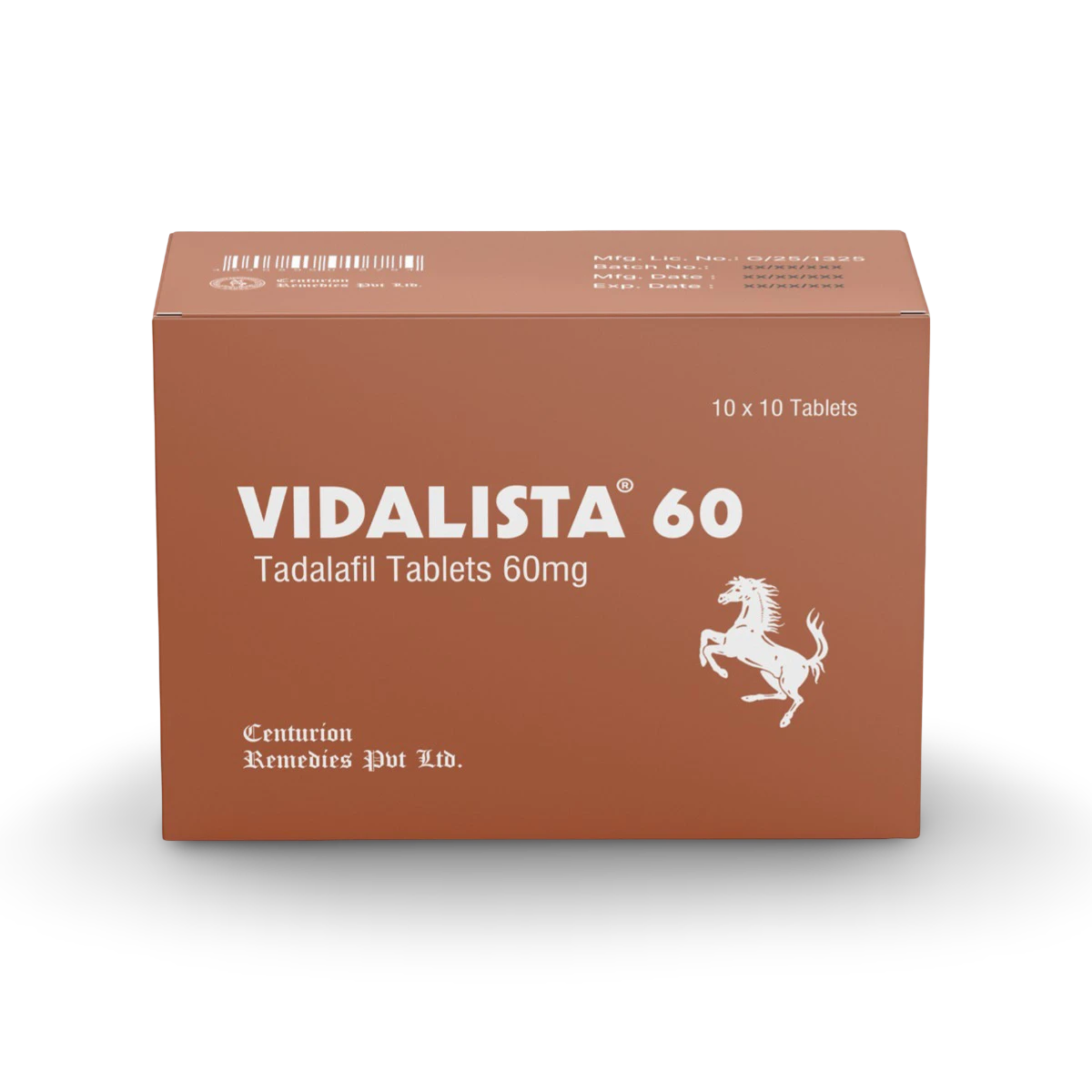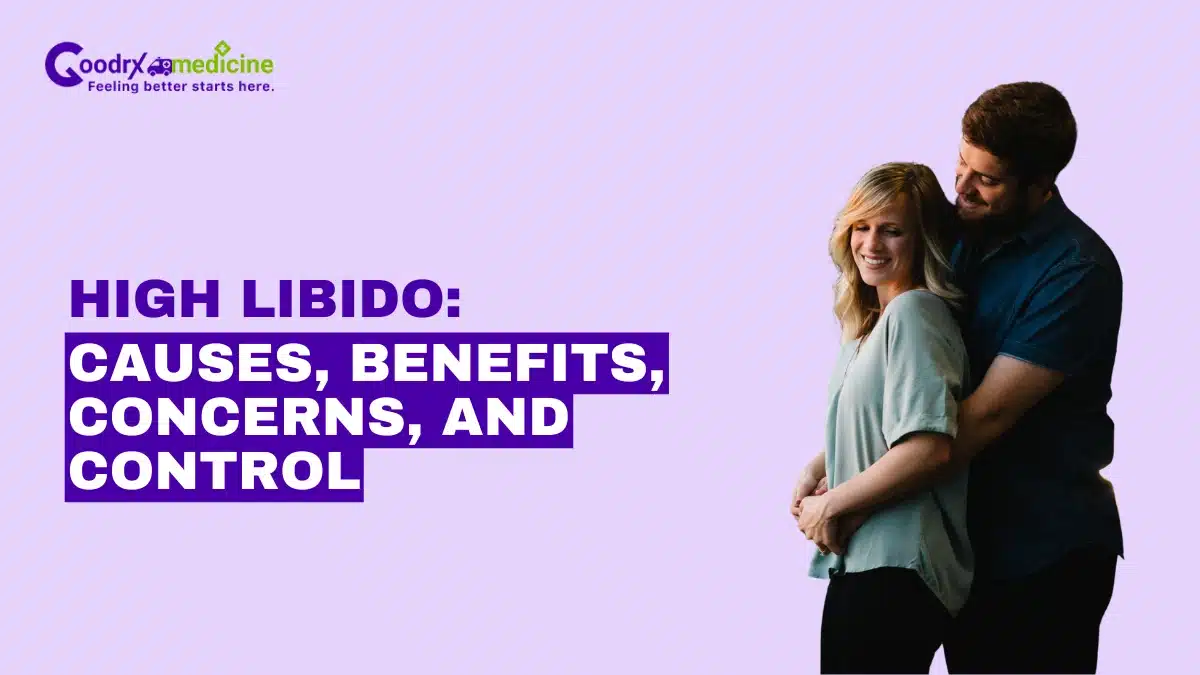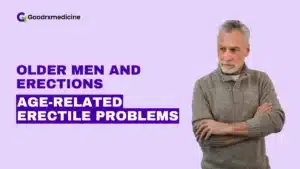You may notice that your sexual desire feels stronger than usual. Having a high, or an above-average sex drive, is not uncommon.
For some people, it is a source of energy and intimacy in their relationships. For others, it may cause challenges, especially if it does not match their partner’s needs or feels hard to manage.
This article will help you understand what high libido means, why it happens, how it can affect daily life, and what you can do to keep it healthy. You will look at both the positive and difficult sides, and learn safe ways to manage your sexual energy.
What is high libido?
High libido means having a strong or frequent desire for sexual activity. It can be different for every individual and depends on many factors. For example, what one person considers a healthy male high libido might seem very different to someone else.
High sexual libido is natural when it fits comfortably into your life without causing stress or problems. Signs of high libido include thinking about sexual activity often, feeling ready for sexual activity frequently, or being very interested in sexual experiences.
Sexual desire (libido) and erectile function are related but not always in sync. You may feel a strong sexual urge but struggle physically to act on it. Treatments for ED, such as Food and Drug Administration (FDA)-approved medications like Sildenafil or Vardenafil, may help.
Save up to 90% on your medicine bills

Cenforce 100 mg

Cenforce 200 mg

Kamagra Oral Jelly Rx 100 mg

Vidalista 60 mg
Common causes of high libido
There are several reasons why you may experience a high sex drive. Some are related to natural body changes, while others are connected to your lifestyle or mental health:
Hormonal changes
Your hormones play a significant role in your sexual desire. When certain hormones increase, your libido can rise. Common factors include:
- Higher levels of Testosterone (in both men and women)
- Women experiencing Ovulation, when fertility is at its peak, and when pregnant
- Hormone therapy, such as Testosterone Replacement Treatment (TRT)
Mental, emotional health and mood
Good mental health can boost your sexual desire. Your mind and emotions also affect how much sexual desire you feel. You may notice a higher libido when you:
- Feel happy and confident in your life.
- Experience less stress and more relaxation.
- Are starting a new relationship, often called the ‘honeymoon phase’.
- Have a strong emotional bond with your partner.
On the other hand, some mental health conditions, like Bipolar Disorder or Mania, can lead to very high sexual urges. During manic phases, individuals may experience increased sexual desire. Mood changes might cause sudden shifts, like a high sex drive all of a sudden.
Medications and health conditions
Specific health issues and prescribed treatments can significantly impact libido, both increasing and decreasing sexual desire. Here are some key factors to consider:
- Hyperthyroidism (overactive thyroid) can raise sex drive.
- Some medications affecting Dopamine can enhance libido.
- Certain Parkinson’s disease treatments and antidepressants may boost sex drive in some people.
You might notice changes if you start or stop certain medications.
Lifestyle factors
How you take care of your body influences your sexual energy. People often report stronger sex drives when they:
- Exercise regularly, which improves blood flow and boosts energy.
- Sleep well and keep a steady sleep schedule.
- Have a satisfying relationship and positive social interactions.
- Eat balanced meals that support hormone health.
- Avoid heavy drinking and smoking.
Benefits of a high libido
Having a high sex drive can bring several positive effects when it is managed well. You may notice more intimacy with your partner, improved self-esteem, and better physical health.
High sexual desire in men and women can lead to:
- Stronger emotional connections in relationships
- Better mood and reduced stress from the release of Endorphins
- Improved circulation and cardiovascular health
- Higher confidence and satisfaction in personal life
These benefits show that a healthy male with a high libido or a naturally high libido in women can be essential to overall well-being.
When is high sexual drive a concern?
It is usually not a problem unless it disrupts your daily life. You might want to seek help if:
- You feel unable to control your sexual thoughts or behaviors.
- Your sexual drive interferes with work, social life, or responsibilities.
- You engage in risky sexual behaviors that could cause harm.
- You feel distressed or guilty about your sexual urges.
- Your relationships suffer because of sexual behavior or preoccupation.
This state, when sexual thoughts or actions become obsessive or compulsive, is sometimes called Hypersexuality or Compulsive Sexual Behavior Disorder. It affects about 10% to 11% of people and may need professional support to manage it.
Signs of problematic high sex drive include constantly thinking about sexual activity, secretive or risky behavior, and feeling upset when you can’t act on these urges. If you recognize these signs, talking to a healthcare provider or mental health counselor is essential.
How to control high libido in a healthy way
The good news is that there are effective ways to manage a high libido so that it does not disrupt your life. Most people find that small lifestyle changes and open communication make a big difference:
Communicate with your partner
Sharing your feelings is one of the most effective steps you can take. When your partner understands your needs, you can find ways to meet halfway. You might agree to schedule intimate time or find other ways to show affection. Open and caring conversations can prevent misunderstandings.
Create healthy outlets
Channeling your energy into positive outlets can reduce the intensity of sexual urges. Activities such as regular exercise, meditation, and creative hobbies help you manage both stress and sexual desire.
Set personal boundaries
If risky behaviors tempt you, setting clear limits for yourself is vital. Remind yourself of your health goals and focus on safe, respectful choices.
Practice safe sexual choices
Whenever you engage in sexual activity, use protection and make sure both you and your partner feel comfortable, and respect consent. This protects you and your partner from health risks and builds trust.
Focus on nutrition and lifestyle
Balanced meals, steady sleep, and reduced alcohol can help keep your sex drive at a healthy level.
Seek professional guidance
If you wonder how to control a high sexual desire, speaking with a healthcare professional is essential. They can check for underlying conditions and suggest safe high-libido treatments. For example, if you want to know how to reduce high sexual drive in females, your doctor may check hormone levels and recommend lifestyle changes rather than medicines unless medically required.
Professional support improves both emotional and relationship satisfaction in individuals facing sexual health concerns.
Conclusion
High libido means having a strong sexual desire, which can feel natural and healthy when it fits well into your life. It may come from hormonal shifts, emotional health, lifestyle habits, or certain medications.
Many enjoy its benefits, such as closer relationships, better mood, and improved overall well-being. Still, high sexual desire may become a concern if it disrupts daily life, causes stress, or leads to risky behavior. You can manage it through open communication, healthy outlets, safe sexual choices, and balanced routines.
If you feel your libido is too strong or unmanageable, seeking professional guidance is essential. Always consult a healthcare provider to explore safe and effective high libido treatments tailored to your health and needs.

Frequently Asked Questions
Can a high libido cause sleep problems?
Yes, a high sexual drive can cause sleep problems. When you feel an extreme sexual desire, your mind may become active and excited, making it hard for you to relax and fall asleep. This can lead to difficulty resting well during the night.
Can high libido change over time?
Yes, it can change over time. You might feel more or less interested in sex as you grow older or because of changes in your body, emotions, or health. Many things, like stress, mood, and medicines, can also affect the strength of your desire over time.
Are there foods that influence a high libido?
Yes, some foods can influence a strong sexual drive. Foods like nuts, chocolate, and certain fruits can help increase your energy and mood. They improve blood flow and boost your happiness, making you feel more interested in intimacy. Eating healthy helps your body and mind.
Can women experience a high libido after pregnancy?
Yes, women can experience an increased libido after pregnancy. Many individuals feel a greater desire because of hormone changes, improved body image, or feeling closer to their partner. However, this can vary for each person depending on their health and emotions after giving birth.
Can men experience a high libido in middle age?
Yes, men can experience an enhanced libido in middle age. Many men feel a strong interest in sex during this time. Hormones, health, and emotions affect libido. Staying healthy, eating well, and reducing stress can help keep your interest in sex high as you grow older.
Is there a difference between male high libido and female high libido?
Yes, there is a difference between male and female libido. Men often show their high sexual drive through strong physical desires and quick arousal. Women’s libido may involve emotional connection and vary more with feelings and mood. Everyone experiences desire in their unique way.
When referencing outside resources, GoodrxMedicine always provides full citations. To learn more about the measures we use to maintain the quality of our content, please review our Content Information Policy.











